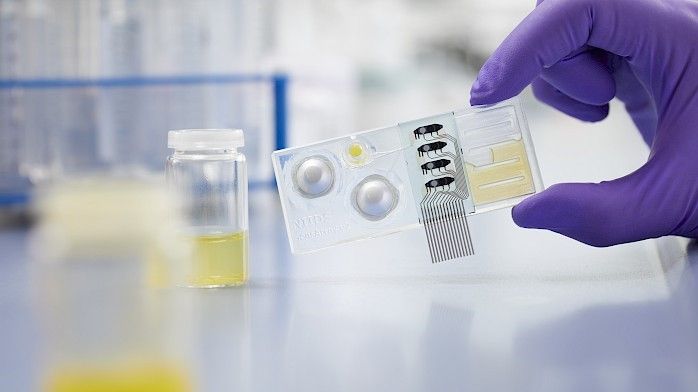/ Forschung
New project: Novel Diagnostics to Improve Migrant and Refugee Health
Swiss TPH is launching a new project on the development of an integrated infectious disease diagnosis and surveillance system (NIIDS) to improve migrant and refugee health. NIIDS will assess healthcare needs of migrants and refugees, as well as set up a platform to support the diagnosis and management of clinically relevant infectious diseases in these vulnerable populations.
Despite the effects of the COVID-19 pandemic, global mobility is likely to increase substantially in the near future. People move between countries and regions in search of better opportunities, to escape disasters and conflicts, or because they are displaced. Refugees, displaced people and migrant populations face major obstacles on their journeys, especially in accessing healthcare, which are often complicated by issues relating to stigma, language, financial and legal difficulties.
To support refugee and migrant health, Swiss TPH, the Armauer Hansen Research Institute (AHRI) and partners are developing a novel integrated infectious disease diagnosis and surveillance system (NIIDS) that will be launched in Ethiopia, where there are currently over 800,000 registered refugees and asylum seekers.

